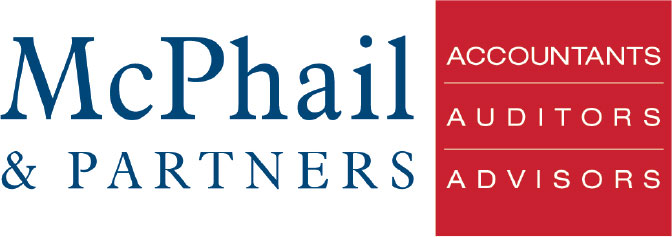The $20,000 Write Off – What You Need to Know
 As a small business owner, you’ve probably heard about the 2015 Budget changes to instant asset write-offs. To help you understand what the changes can mean for your small business, we’ve put together some key facts.
As a small business owner, you’ve probably heard about the 2015 Budget changes to instant asset write-offs. To help you understand what the changes can mean for your small business, we’ve put together some key facts.
What has changed as a result of the 2015 Budget?
Under the changes to simplified depreciation rules for small business, you can:
1. Immediately write off eligible depreciating assets costing less than $20,000 each, as long as you buy them and install them ready for use from 7.30pm on 12 May 2015 until 30 June 2017.
2. Immediately write off a small business asset pool (including existing pools) if the balance is less than $20,000 at the end of a financial year, until 30 June 2017.
3. Choose to use simplified depreciation rules even if you opted out in the last five years. This took effect at 7.30pm on 12 May 2015 and will end on 30 June 2017.
Find out more about the changes to accelerated depreciation for small businesses.
If you’re a primary producer, you can:
1. Immediately deduct the cost of fencing and water facilities (such as dams, tanks, bores, pumps, etc.)
2. Depreciate over three years the cost of fodder storage assets (such as silos and tanks that you use to store grain and other animal feed).
These changes apply to eligible assets that you buy from 7.30pm on 12 May 2015. Find out more about the changes to accelerated depreciation for primary producers.
When do these changes take effect?
These changes are in effect now. The new laws were passed on 22 June 2015.
How is it different to before?
Before the changes, under simplified depreciation rules:
1. You could only immediately write off eligible depreciating assets that cost less than $1,000 each
2. You could only immediately write off a small business asset pool if the balance was less than $1,000 at the end of a financial year
3. If you opted out of the simplified depreciation rules, you had to wait five years before you could use them again.
Before the changes, primary producers could claim the costs of:
1. Fences over a period of up to 30 years
2. Water facilities over 3 years
3. Fodder storage assets over a period of up to 50 years.
Will these changes apply to all businesses?
No. The simplified depreciation rules only apply to businesses with a turnover of less than $2 million.
Sole traders and partnerships - if total tax deductions for your business is greater than the income from your business (that is, your business makes a loss), you may be eligible to offset the loss against your other income (such as salary and wages). There are some conditions you’ll need to meet to be eligible – read non-commercial losses on the ATO website for more information.
Do I get my money back straight away?
No. ‘Immediate’, ‘instant’, or ‘straight away’ means that you can claim the cost of depreciating assets in the financial year that you first used or installed them ready for use. By claiming the deductions, you reduce your taxable income, and your tax payable.
You don’t get cash back from the tax office straight away.
What can I write off?
You can only write off eligible depreciating assets that cost less than $20,000 and that you use for business purposes.
Depreciating assets include items such as computers, electrical tools, furniture, curtains, carpets and cars.
Land and trading stock are not depreciating assets.
Note that certain types of depreciating assets can’t be written off under simplified depreciation rules, including horticultural plants, capital works, and software.
Read the full list of exclusions to the simplified depreciation rules.
Do I need to keep any records?
You need to keep records of depreciating assets if you claim deductions for them. These records need to be kept for at least 5 years.
How can I find out more about these changes?
Visit the ATO website for more on expanding accelerated depreciation for small business or call the ATO on 13 28 66.
For more information about how to make your business more tax effective please contact Carol at our office on 9898 9221.
An Interview with Wayne Durdin – Celebrating 35 Years
This year celebrates 35 years for Wayne being part of McPhail and Partners, such a fabulous milestone. In this interview, Wayne shares his insights into the industry, the changes over the years both personally and professionally and what his aspirations were if he wasn’t an Accountant. Thank you Wayne for sharing your story and we wish you many happy returns.
1. What year did you start at McPhail and Partners?
June 1980, as a very young, single (engaged) keen audit/tax grad.
2. Why did you join the business?
I had recently graduated after 7 years of full time employment & part time study at Swinburne. I was with a city firm of 6 partners & 50 staff, doing both audit & tax work & they were in the process of merging with what was to eventually become part of Deloitte. I liked the smaller, personal relationships with both the staff & the clients & did not want to be part of a then big6 firm where I could envisage myself doing predominately audit work for large public companies. I was looking around to see what my options were & what was available when I met with Ross & Brian who were looking for someone with audit experience to join their family business. We obviously clicked & the rest is history.
3. Why have you stayed?
In short because of the people; both the staff & the clients. I enjoy the close personal relationships I have developed with our clients. Seeing them achieve their personal goals & knowing you were a part of it is a great thrill. You feel very privileged knowing & sharing many of their confidences & aspirations & you develop many friendships. This can happen in many accounting practices, but at McPhail & Partners it is also working with a great group of people who share similar values.
4. So much has changed in the world over the last 35 years, what are five of the biggest changes you have witnessed in the accounting world?
I could easily say GST, superannuation, computers, the Internet & communication. However, these are individual changes, & although specific to tax &accounting they are the cause & do not reflect the real underlying changes. Not in any particular order:
- The increasing rate at which things change. Computers, phones, & software are all changing at increasing speeds. It would be nice to enjoy new advancements, fully utilise and appreciate them without the worry that it will become obsolete with the latest update!
- The expectation of immediate response. I blame this on emails & mobile phones, but there is a community expectation of wanting things immediately. Once an email has been sent it is assumed that a) you have received it, b) you have read it or seen it & c) you have acted upon it. People in general live for the moment & do not plan ahead. Everything is wanted now.
- The complexity within all things, not just taxation. Oh for the days when things were simple & you could give straight forward answer or advice that your clients wanted. Now it is all given with disclaimers, the fear of being wrong, or having to ask yourself, am I authorised to say this. We generally know the answer, what is best for our client & what they should do, but in most cases we can’t simply tell them.
- The availability of knowledge. The Internet, Google, or whatever provides information to everyone at their fingertips. Unfortunately this is easily misinterpreted, misunderstood & cannot always be relied upon.
- Specialization. No longer is it possible to know everything. Knowing your limitations & when to refer to a specialist, whether it is another accountant, financial planner, legal or superannuation expert is a critical part of providing the best service to your clients.
5. How has business changed over the last 35 years?
The above changes also apply to the business world in general. I would however add that business is now international. With the Internet, on line shopping, outsourcing overseas, have all added new dimensions to the business world. Not only is this is a different form of competition which requires new business skills, but it also provides opportunities to many entrepreneurs.
6. How do you think you have changed over that time?
Hopefully for the better! I realise that I cannot do everything & I now rely a lot more on others. Older & wiser, or should I say more experienced, I now understand the value of client relationships & the service that we provide. It is not just a tax return or BAS, but it is a service that gives our clients piece of mind & security. As a family man, I have seen & experienced many of the challenges that our clients encounter & can confidently advise them from first hand experience. The one thing that I learnt very early on is that everyone is different, has different goals & ambitions. Very obvious, but easily overlooked when working with financial matters.
7. Ten years from now, how do you believe the world of accounting will look?
Obviously it will be very different. Over the years I have seen accounting change from hand written cash books & ledgers, the use of 13 & 18 column sheets (the precursor to excel spreadsheets), the massive time savings with the introduction of the Kalamazoo system, Burroughs accounting machines, computers & now laptops, mobile phones & tablets.
Technology will be constantly changing, that is a given, & the now accepted use of the cloud.
The accounting profession is moving to real time information & reporting. With the use of technology such as direct bank feeds, I believe this will provide immediate financials, & enable the automated preparation of tax returns, BAS etc. making data entry obsolete, along with the need for the separate preparation of returns.
As an accountant we will be providing clients with meaningful advice on planning, business improvement, mentoring, & more certification/audit type reports. Clients will always need assistance with business management skills.
8. What is one piece of advice you would give to a university graduate who is looking for work?
They need to be themselves. With minimal experience it is essential that they are the right personality fit for the business.
9. Is there a funny tale you can share about McPhail and Partners that perhaps others don’t know?
Accountants are traditionally dull & conservative, but we do have our moments, generally not in public. There have been some great practical jokes played on staff within the office, & I have been on the receiving end of a few over the years. I have returned from holidays to find my office had been fully relocated into the tea room, an area too small for either a desk or a chair. Or one of my favorites was when we learnt that we could log in to other computers remotely. One particular staff member was continually found to be playing solitaire & other computer games when others walked into his office, until he realised that he was being set up. There are other stories, but these are best kept private as most would also incriminate me in some way.
10. If you were to start over again and had the opportunity to work in a different industry and role, what would you choose?
I have always enjoyed problem solving which gave me an interest in law when younger, but I have always had an interest in music. Not as a musician, I can’t sing, dance & minimal playing ability, but possibly in some capacity within the music recording industry if it had been possible. I also loved all types of sport, (& still do) & was at best OK with some of them, so I knew very early that it was only going to be a hobby & not a career.
Your Tax Time Checklist

We are pleased to provide you with a useful checklist to ensure you have everything covered at tax time. We have also included a few tips which could come in handy for the end of financial year. Click here to access a PDF version of the checklist!
Summary in Review – The Federal Budget 2015

The Highlights
This is a highly targeted Budget that seeks to keep change within community tolerance levels.
Most spending measures target productivity gains - although small businesses with turnover between $2m and $5m will be disappointed. Revenue measures target the asset or income rich, or just plain unpopular.
Accelerated depreciation across multiple areas:
• Micro business - immediate deductibility from Budget night for any assets purchased and used or installed and ready to use by 30 June 2017 that cost less than $20,000
• Start ups – immediate deductibility for professional expenses – cost of lawyers and accountants to get a business up and running
• Farmers – immediate deductibility for fencing and water facilities
Tax cuts for small business (under $2m) from 1 July 2015
• 1.5% company tax reduction
• 5% tax discount for unincorporated small businesses
GST on digital supplies
• Similar GST treatment applied to supplies of digital products to Australian consumers – including consulting and professional services – regardless of whether they are supplied by a local or foreign supplier
Individuals
• Changes to work related deductions for car expenses – 12% of original value and one third of actual cost methods removed and simplification of cents per kilometre method
FBT changes
• Changes to salary sacrificed meal entertainment for not for profits
• Expansion of FBT exemption for work related electronic devices provided by small businesses
Multinationals targeted
• Changes to Part IVA target around 30 global companies with revenue in excess of $1bn
Accessing government benefits
• Changes to how superannuants’ income counted for social security
• Child care shake up - Collapses three current eligibility tests with one means and activity test
• Asset test changes mean 91,000 pensioners no longer qualify and 235,000 will have pension reduced
•‘Double dipping’ Government and employer paid parental leave stopped
What is the future of the Australian Tax System
 The Government’s discussion on tax reform has been released leaving little doubt that things will change – we just don’t know what as yet.
The Government’s discussion on tax reform has been released leaving little doubt that things will change – we just don’t know what as yet.
Simply titled 'Re: think' the tax paper released by Treasurer Joe Hockey at the end of February opens the forum for a discussion on Australia’s future tax system. There is a lot of ‘conversation’ in this document and no recommendations.
Comments on the discussion paper can be made up until 1 June 2015. This is a wide-open debate and if you have a view on how things should change you should make a contribution. The Government asks contributors to focus on ideas and how revenue is raised (not just how much). For more information, we have provided the links below:
• Tax Discussion paper
• Media Release: Time to ‘re:think our tax system
• Speech: Launch of tax discussion paper
Intergenerational report
The Australian Government, at least once every five years, produces an Intergenerational Report. It assesses the long term sustainability of current Government policies and how the changes to the Australian population would impact on economic growth, workforce and public finances over the following 40 years.
The Government has released a new Intergenerational Report that contains an analysis of the key drivers of economic growth (population, participation and productivity) and the impact that changes in those drivers has on the standard of living and public policy. While not aimed specifically at tax issues, it is likely to form part of the framework for any upcoming tax reform ideas.
For more information, you can download the report here:
• Treasury – 2015 Intergenerational Report
Privacy and TFNs
The Privacy Commissioner has issued a new privacy rule that deals specifically with TFNs. It replaces the Tax File Number Guidelines 2011.
Privacy (Tax File Number) Rule 2015 regulates the collection, storage, use, disclosure, security and disposal of an individual’s TFN information. A breach of the TFN rule would be considered an interference with privacy under the Privacy Act and unauthorised use may also be an offence under the Taxation Administration Act 1953, resulting in penalties which could include imprisonment or fines.
The information provided in this rule is likely to be relevant to all as they come into contact with TFNs on a regular basis. Some of the practical issues to be aware of under the TFN rule include:
• When requesting an individual’s TFN it is necessary to take reasonable steps to ensure that the individual is informed of the law which authorises the collection of the TFN and the purpose of collecting the TFN;
• The recipient of a TFN is allowed to inform the individual of their TFN (e.g., if a client forgets their TFN or can’t find their TFN records);
• Organisations need to take reasonable steps to ensure that all staff are aware of the rules regarding the collection and use of TFNs (e.g. staff training sessions).
For more information please click the link below:
• Privacy (Tax File Number) Rule 2015
If you or anyone you know would like more information about any of the information in this article and how it may affect you, please feel free to contact our office on 03 9898 9221 and we would be happy to answer any questions.
What to expect in 2015
Politics & taxes The last Federal Budget contained a series of severe cuts. Some of those have passed Parliament and become law while others are pending the outcome of negotiations with the minor parties, while others have died a slow and protracted death. Keeping track of what announcements are now law is difficult. Here’s a quick summary:
The last Federal Budget contained a series of severe cuts. Some of those have passed Parliament and become law while others are pending the outcome of negotiations with the minor parties, while others have died a slow and protracted death. Keeping track of what announcements are now law is difficult. Here’s a quick summary:
• Carbon Tax - abolished.
• Mining Tax - abolished along with the associated business initiatives such as the loss carry back rules, accelerated depreciation for motor vehicles and the instant asset write off.
• Superannuation guarantee (SG) - rephrased as part of the mining tax repeal. Now, the SG rate will remain at 9.5% until 1 July 2021.
• School kids bonus - was to be abolished as part of the mining tax repeal but is now means tested until 31 December 2016, before being abolished.
• 2% Debt tax - applies between 1 July 2014 until 30 June 2017 to those with annual taxable incomes over $180,000. In line with the debt tax, FBT rates will also increase from 47% to 49% from 1 April 2015 until 31 March 2017.
• Biannual indexing of fuel excise – introduced by stealth as a tariff proposal.
There are a series of other announced reforms that have either been rejected or stalled in the Senate. These include Family Tax Benefit reform, the $7 fee for GP visits, an increase in the pension age to 70, the 6 month wait for unemployment benefits, and deregulation of University fees. The Coalition’s paid parental leave scheme also seems to have faded from view.
The problem for the Government is that national debt is increasing – the mid year economic review revealed a $10.6bn blowout. Falling commodity prices and sluggish growth mean that the deficit is not going to be plugged any time soon.
To bring debt under control, the Government needs to cut spending somewhere or increase taxes. At this stage, it’s uncertain what and how this might be achieved. Cutting spending will rely on amending legislation passing the Senate with agreement by the minor parties - something the Government has not been able to achieve to date. On the tax front, the Government’s Tax White Paper is due out within weeks. The much anticipated review of the tax system is reported to outline the need to change the current system’s reliance on personal and corporate taxes including broadening the base and increasing the rate of GST, and changing how superannuation is taxed.
However, an increase in the GST requires the agreement of the States and as a result, all parties involved will be savaged by voters for any increase. If the Government acts on the reform measures set out in the Tax White Paper they have until mid 2016 to sell the concept to voters (according to the ABC’s Antony Green, the first possible date for a normal House and half-Senate election is 6 August 2016).
For more information about how these points may affect you, please feel free to contact Carol Tocchetto on 9898 9221.
Did you find this article interesting? Can you think of someone else who may also find it interesting? Please feel free to share it using the social media share buttons below, thank you.




